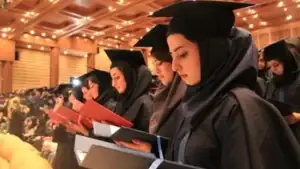In a significant move to enhance the security of Karachi, the government has allocated over 3 billion rupees for the Karachi Safe City project. This initiative aims to bolster the city’s safety measures, leveraging advanced technology to reduce crime rates and improve overall law and order.
Sindh Home Minister Zia Lanjar announced the substantial allocation of funds, emphasizing the importance of swift and efficient implementation. He directed that the first phase of the Safe City project be completed within 12 months. “The Safe City project is a vital step towards making Karachi safer. We aim to see a noticeable decline in crime rates as this project progresses,” Lanjar stated.
Project Details
The Karachi Safe City project involves the installation of state-of-the-art surveillance systems, including high-definition cameras at strategic locations throughout the city. These cameras will be connected to a central command and control center, enabling real-time monitoring and quick response to incidents.
In addition to surveillance cameras, the project will incorporate advanced traffic management systems and facial recognition technology to enhance security measures further. These technologies will help law enforcement agencies to detect and prevent criminal activities more efficiently.
Implementation Phases
The first phase, expected to be completed within a year, will cover key areas of Karachi, focusing on high-crime zones and major public spaces. The second phase will aim to provide comprehensive coverage of the entire city. Lanjar mentioned that following the successful implementation in Karachi, the Safe City project would be extended to other major cities across Sindh, ensuring a broader impact on regional security.
Lanjar highlighted the government’s commitment to improving law and order, stating, “No government wants criminal activities to persist. We are seeing gradual improvements in the security situation, and while it is not perfect, it is certainly getting better.” He expressed satisfaction with the performance of the police force and their efforts in maintaining peace and security in the city.
Lanjar also mentioned that the Safe City project is part of a broader strategy to modernize the police force and equip them with the necessary tools to combat crime effectively. “We are investing in technology and training to ensure our law enforcement agencies are well-prepared to handle the challenges of modern urban security,” he added.
The successful implementation of the Safe City project in Karachi is expected to serve as a model for other cities in Pakistan. The government’s long-term plan includes expanding this initiative to cover additional urban areas, thereby enhancing overall national security.













